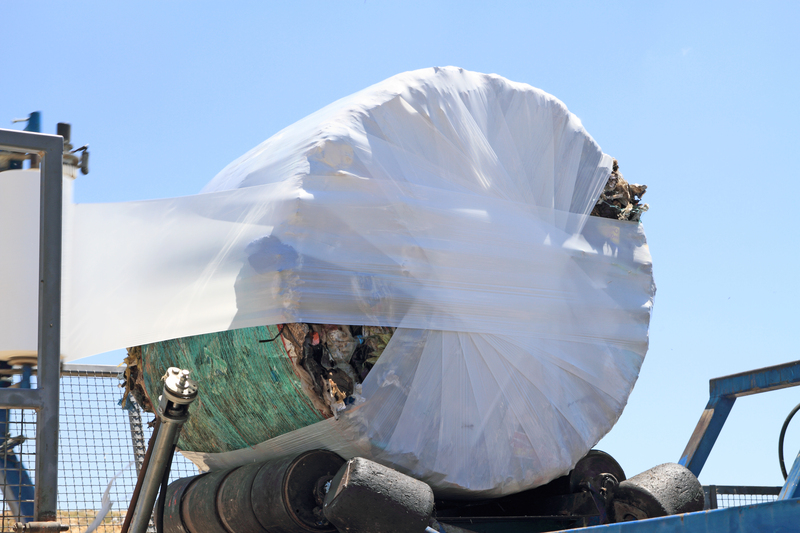Beating the High Cost of Bulky Waste Removal: Pro Tips and Tricks
Bulky waste removal can be a costly endeavor for homeowners, tenants, and businesses alike. Whether you're clearing out an old sofa, a broken washing machine, or construction debris, costs can quickly add up. But don't worry - with the right strategies, you can save money and dispose of large items responsibly. In this comprehensive guide, we'll explore the best ways to beat the high cost of bulky waste removal with actionable tips and tricks.
Understanding Bulky Waste Removal
Bulky waste refers to items that are too large, heavy, or awkward to be collected alongside your standard household rubbish bins. Examples include old furniture, mattresses, appliances, garden waste, and renovation debris. Unlike general waste, these items often require special handling and disposal methods, leading to increased removal costs.
Common Reasons for Bulky Junk Removal
- Moving house or downsizing
- Home renovations or remodeling
- Spring cleaning or decluttering
- Replacing old furniture or appliances
- Yard and garden clear-outs
- Clearing after tenants, especially in rental properties

The True Cost of Bulky Waste Disposal
Why is bulky waste collection so expensive? The cost is determined by several factors:
- Labor required for loading and hauling large items
- Transportation and fuel costs
- Local disposal fees and landfill charges
- Environmental surcharges for hazardous or special items
- Minimum call-out fees or pricing by volume/weight
Prices can range anywhere from $50 to over $500 for a single pickup, depending on your location and the volume of waste. Small businesses and families can face an unexpectedly hefty bill, especially if they're not aware of cheaper alternatives.
Pro Tips to Beat Bulky Waste Removal Costs
1. Plan Ahead and Sort Materials
One of the best ways to save money is by planning your disposal strategically. Start by sorting your waste into categories: reusable, recyclable, donatable, and landfill-only. Many removal companies charge extra for mixed loads. Keeping items separated can reduce costs, and in many cases, you'll find that a portion of your bulky items can be handled for free or at a much lower rate.
- *Furniture in good shape?* Consider donating instead of dumping.
- *Metals and electronics* are often accepted at recycling centers for little to no cost.
- *Yard debris* may be composted or accepted at green waste facilities separately from landfill trash.
2. Investigate Municipal and Council Services
Many localities offer bulk waste pickup as part of their regular waste management service. Some cities allow homeowners one or two free curbside pick-ups per year; others have centralized drop-off days where residents can bring their large items for free or discounted disposal.
To find out:
- Check your city or county's official website for bulky waste collection dates.
- Call your local recycling center for details on accepted items and any applicable fees.
- Sign up for government email alerts about neighborhood clean-up events.
Pro Tip: If you live in a multi-family building or HOA, ask your property manager about scheduled pick-up events. Coordinated efforts may mean discounted rates.
3. Donate, Sell, or Give Away Usable Items
Why pay to trash something when someone else might want it? Charities, non-profits, and online marketplaces can help you clear out your space at no cost, and sometimes even for profit!
- Charities: Organizations like Goodwill, Habitat for Humanity, and local shelters often accept furniture and appliances in good condition. Some will even arrange free pick-up.
- Online Marketplaces: Use websites like Facebook Marketplace, Craigslist, Freecycle, or Nextdoor to sell or give away bulky items quickly. List items as "curb alert" for contactless pick-up.
- Community Groups: Social media groups and 'Buy Nothing' projects are excellent for offloading gently used bulky items to neighbors.
This approach not only saves you removal fees, but also encourages recycling and reuse.
4. DIY Bulky Waste Drop-Off
Most areas have council-run waste transfer stations or recycling centers that accept bulky waste for a much lower rate compared to professional haulers. In some cases, residents pay by weight, volume, or a fixed entrance fee.
- Borrow or rent a trailer/van with friends and share the cost of fuel and time.
- Group your waste drop-off with neighbors or family to maximize efficiency.
- Bring proof of residency: Some facilities offer residents subsidized or free drop-offs.
5. Compare Professional Bulky Waste Removal Companies
If you need to hire a junk removal service, be sure to:
- Gather several quotes and compare pricing methods (by item, volume, truck load, etc.).
- Ask about included services (labor, clean-up, recycling).
- Inquire about discounts for booking online, flex scheduling, or repeat customers.
- Check customer reviews to ensure reliable and ethical disposal practices.
Don't assume the cheapest is always best - prioritize companies with responsible disposal processes and transparent pricing. This will help you avoid hidden costs and environmental fines.
6. Pool Resources for Bulk Discounts
If several households in your area need bulky waste removal at the same time, you may be able to negotiate a lower group rate with local junk haulers. This strategy is particularly effective following community yard sales, spring clean-outs, or renovation projects.
- Coordinate with your neighbors or HOA to schedule a collective pickup.
- Ask service providers for bulk or community rates.
- Share transportation rental fees with friends tackling their own bulky waste.
7. Repurpose or Upcycle Bulky Items
An increasingly popular trend is to transform unwanted bulky items into something new. Not only does this keep waste out of landfills, it can also save you money or even become a profitable hobby.
- Turn old pallets, crates, or furniture into garden beds, tables, or DIY decor.
- Upcycle appliances into storage units or quirky art projects.
- Broken electronics may yield parts for hobbyists or repair shops.
Many resources online offer creative ideas for repurposing virtually anything--explore YouTube and DIY blogs for inspiration!
Special Considerations for Bulky Waste Disposal
Avoiding Fines and Illegal Dumping
Never be tempted to dump bulky items illegally or leave them curbside outside of scheduled pickup times. Most municipalities enforce strict penalties for fly-tipping, including hefty fines. Always follow local regulations for responsible bulky waste removal.
Environmental Impact and Hazardous Items
Some bulky waste, such as fridges, mattresses, and electronics, contain hazardous materials (like refrigerants, heavy metals, or foam) requiring specialized disposal procedures. Be sure to:
- Separate hazardous and electronic waste from general items.
- Use certified e-waste recyclers or programs for old TVs, computers, and gadgets.
- Contact your local government for directions on handling specific hazardous bulky waste.
Proper handling protects both the environment and your wallet from potential penalties.

Frequently Asked Questions About Bulky Waste Removal
How can I minimize the cost of bulky waste collection?
Plan ahead, sort items for potential donation or recycling, utilize municipal services, and shop around for the best deal among local providers. Always explore free or cheap drop-off locations if you can transport the items yourself.
Are there free bulky waste pick-up options?
Many councils or municipalities provide limited free pick-up services each year for residents. Check your area's waste management website, or inquire locally to discover what's available to you.
What bulky items are commonly recyclable?
Metal furniture, large electronics, appliances, and some mattresses can often be recycled rather than landfilled. Always separate and check with recycling centers for eligibility.
Summary: Cut the Cost of Bulky Waste Disposal
Beating the high cost of bulky item removal doesn't need to feel overwhelming or expensive. By planning ahead, making use of community resources, donating or selling usable items, and exploring self-haul options, you can dramatically reduce expenses. For waste that must be collected professionally, comparing quotes and teaming up for multi-household pickups can bring down costs significantly. Finally, staying environmentally conscious through recycling, upcycling, and proper hazardous waste handling ensures you not only save money but help protect the planet.
- Plan and sort waste
- Leverage local government services
- Donate, sell, or give away usable bulky items
- Drop off at local transfer stations where possible
- Get multiple quotes for professional removal
- Organize group pickups for discounts
- Repurpose or upcycle creatively
- Avoid fines by following local laws
- Handle hazardous bulky waste responsibly
With these pro tips and tricks for beating the high cost of bulky waste disposal, your next clear-out can be easy on your wallet and kind to the environment. Happy decluttering!
